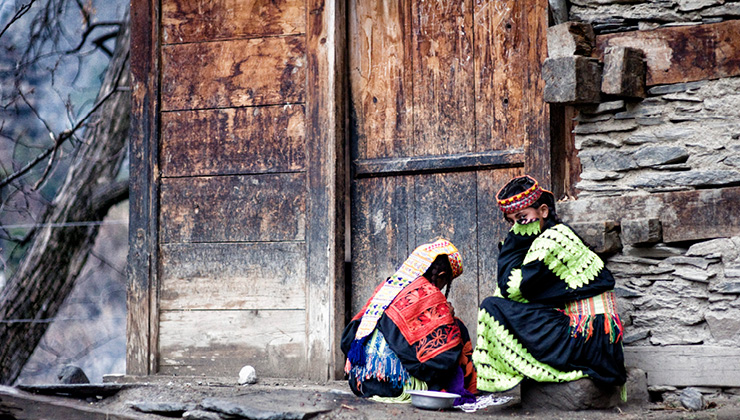The COVID-19 pandemic has amplified the distributive inequality and unequal access to resources as economies across the globe are severely hit and businesses and supply chains are disrupted. The resultant economic crisis will have a disproportionate effect on men and women. Neha Sinha details here why the recovery strategies must allow for the particular needs and circumstances of women and their contribution to India’s economy.
The COVID-19 outbreak affects men and women differently, worsening the existing inequalities for women. Owing to these prevailing socio-cultural and economic differences, the capacity of women to absorb economic shocks varies from men. It is imperative that economic policies must be formulated with a gender lens. However, in India’s economic response to the pandemic, special measures for women are missing. The stimulus packages rolled out by the Government for the recovery of the economy post COVID-19 is devoid of welfare schemes specifically for women.
The UN Secretary General has urged governments to “put women and girls at the center of their efforts to recover from COVID- 19”. The Policy Brief launched by the UN shows that women earn less as well as save less and are more likely to be employed in the informal sector. Many women have a dual role in the household and workplace, making them more vulnerable in terms of social and economic well-being. As a result, loss of jobs and reduction in job opportunities will severely affect the households dependent on them. Financial recovery from this bleak period will entail women working longer hours than usual while managing the household, thus devoting even less time to their self-care.
The post-pandemic scenario is bleak for unpaid care-workers and women employed in informal sector roles such as street vending, home based enterprises, domestic and agricultural work. Reportedly, 81.6% women in India are engaged in the informal sector, primarily agriculture, and a paltry 5.9% in the formal sector. With poor access to resources and several socio-economic barriers in the way, the impending crisis will further exacerbate the economic condition of women from disadvantageous groups and low-income families.
Women engaged in these sectors are not subject to national labour legislations, social protection or entitlement to economic benefits. The loss of income during the lockdown period with no financial security and the increased chances of being underpaid in the wake of the struggling economy will debilitate their livelihoods. Repercussions will be felt throughout the household, one of them being a hike in school dropouts as children are forced to work for supplementing the income in homes.
Reportedly, 81.6% women in India are engaged in the informal sector, primarily agriculture, and a paltry 5.9% in the formal sector.
The cumulative effect of the pandemic on the market will further diminish the female workforce which had pre-pandemic already fallen from 31.8% in 2005 to 20.5% in 2019 (estimated to be 17% of the GDP of the country – less than half the global average); limit economic opportunities for women; widen the wage gap, which on the basis of hourly wages is 34.5%, one of the highest among the lower middle income nations, and leave them exposed to acute adversities with inadequate financial security. This will defeat years of effort by the government and the civil society put into achieving gender equality and social and economic justice for women.
To address this monetary predicament, the Government has launched a scheme wherein INR 500 (USD 6.69) is being distributed for 3 months to the women who hold bank accounts under the welfare scheme Pradhan Mantri Jan Dhan Yojana. Currently, 217 million women residing in urban and rural regions are beneficiaries of Jan Dhan Yojana, and are eligible for the cash disbursement scheme. Although this is a low amount for producing substantial and abiding impact, direct cash transfer is a significant step towards immediate economic assistance to women. However, for long term recovery goals, policy changes must be introduced to create on-going gender sensitive economic bailout packages for women.
Unpaid care-work responsibilities also keeps women out of the labour market. Unpaid care work includes non-market activities in a domestic setting including household chores and tending to members of the family. Moreover, women spend more time than men in unpaid care-work, which if recognised, this would contribute INR 19 lakh crore (USD 254 billion) a year to the Indian economy. On average, women spend 297 minutes per day in unpaid care-work, while men spend 31 minutes per day. If quantified, the total value of unpaid care work as a percentage of GDP is 3.1% for women and 0.4% for men.
Higher inequality in distribution of care responsibilities between women and men leads to higher gender gaps in labour force. The Report of the UN Secretary General’s High-Level Panel on Women’s Economic Empowerment shows that recognition, reduction and redistribution of unpaid care-work is one of the seven primary drivers of women’s economic empowerment. However, unpaid care-work remains largely invisible in the growth stimulating agendas for the country’s economy. Hence, policymakers must take into account the strain and costs associated with care-work to make this sphere visible in the economy and provide social and financial security coverage to the care-workers.
On average, women spend 297 minutes per day in unpaid care-work, while men spend 31 minutes per day
The government should expand the safety net of labour and economic policies to the informal employment sector with due recognition to care-workers. Such reforms will make economic and social security available to women in the informal economy. With access to pensions, equal pay, paid sick leave and maternity benefits, the chances for women to rebound in the economy will improve.
In addition, direct credit assistance could be, and should be, provided to women’s support groups which are popular in the rural as well as urban areas of India and also more accessible. The support groups are voluntary self-help associations mobilising local women to address issues ranging from financial sustenance to domestic violence.
Sectors and supply chains with a large proportion of women should have easy access to credit to retain the female workers and safeguard their employment. For adequate representation of women, their involvement in the decision-making process must be promoted. Starting from the municipal and panchayat (local self-government in rural regions), female participation must be encouraged at all levels of the economic governance.
Policymakers and the administration must adopt a multi-pronged approach to ease the economic pathway for women and strategize their financial protection and promotion in times of crisis. Besides, the local administration and public authorities working at the grass root level must be equipped to ensure the accessibility of resources and the proposed benefits to women by identifying the impediments in the way.
The formulation of the welfare policies must take into account the gender disparities and the existing socio-economic scenario for Indian women. The implementation of policies, in both public and private sectors, from the perspective of gender will yield better outcomes, enhance women’s contribution to the economy and increase economic opportunities for them. Securing women’s formal roles in the economy will give impetus to lift the country from economic doldrums post COVID- 19 and reinforce socio-economic justice for women in the country.
The views, thoughts and opinions expressed in this blog post are those of the author(s) only, and do not necessarily reflect LSE’s or those of the LSE Centre for Women, Peace and Security.
Image credit: Bhumika Singh





